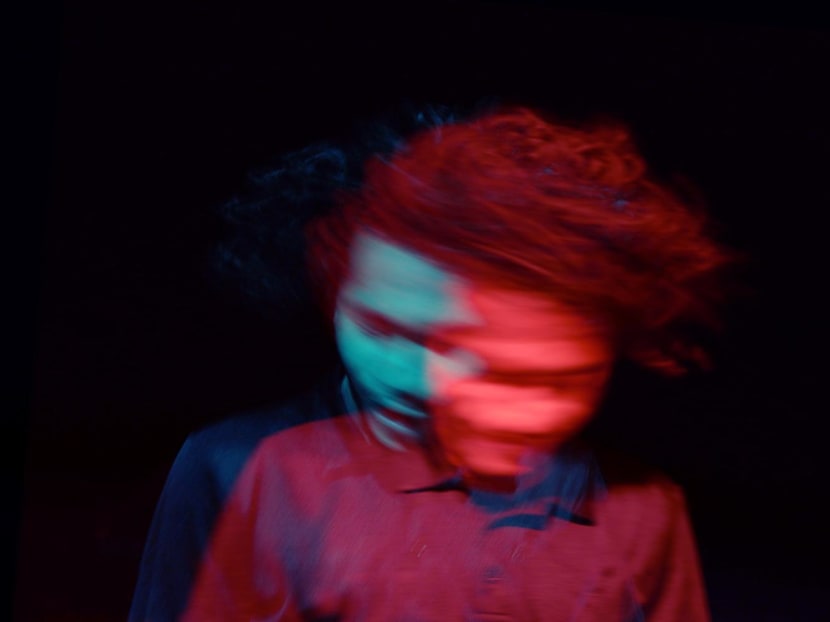Youths' lax mindset, liberal attitudes on drugs pose stiff challenge to S'pore authorities' zero tolerance stance
SINGAPORE — For the most part of her life, Anna (not her real name) steered clear of narcotics, which she said resulted from the constant bombardment of “say no to drugs” messages throughout Singapore’s education system. Such warnings, however, did little to hold back her curiosity while she was studying in a London university a few years ago, when she tried weed, or marijuana, for the first time.

- Singapore's zero-tolerance stance against drugs has been increasingly under seige as parts of the community, especially the youths, adopt a more lax attitude towards narcotics
- The growing liberal mindset comes as other jurisdictions resort to "harm reduction strategies" of legalising and decriminalising drugs as they fail to effectively keep the problem in check
- TODAY spoke to former junkies and recreational drug users who shared their varied views on drugs, as well as organisations on the frontline of the war against narcotics abuse
SINGAPORE — For the most part of her life, Anna (not her real name) steered clear of narcotics, which she said resulted from the constant bombardment of “say no to drugs” messages throughout Singapore’s education system.
Such warnings, however, did little to hold back her curiosity while she was studying in a London university a few years ago, when she tried weed, or marijuana, for the first time.
“Everyone around me has tried at least once, 10 out of 10,” said the 26-year-old professional in the legal profession.
Anna was one of seven youths whom TODAY spoke to ahead of the International Day against Drug Abuse and Illicit Trafficking, also known as World Drug Day, on Sunday (June 26). They include former junkies and recreational drug users whose more liberal attitude towards drugs has become a growing concern for authorities and counsellors here.
This lax mindset comes amid legalisation of drugs like marijuana or cannabis in some countries and the increased glamourisation of drug abuse through the media.
A survey by the National Council Against Drug Abuse (NCADA) in 2020 found that the support among youths aged 18 to 30 for Singapore’s zero-tolerance approach against drugs was 82.5 per cent, lower than the 88.3 per cent for those above the age of 30.
About 18.3 per cent among the younger group thought that it was all right to try drugs as long as one does not get addicted, compared to 17 per cent of older respondents.
And while the overall number of drug abusers arrested declined between 2020 and 2021, the proportion of new drug abusers arrested remained high at 34 per cent, according to the latest figures by the Central Narcotics Bureau (CNB).
About 60 per cent of first-time drug abusers were under the age of 30.
These developments underscore the complexity and urgency of the Government’s endeavour to defend its zero-tolerance stance towards drugs.
“If we allow the formation of a permissive culture towards drugs, this would undermine Singapore’s ability and resolve to achieve a drug-free vision for our children, families and communities,” said NCADA member Narayanan Ganapathy.
WHAT DO YOUTHS HAVE TO SAY ABOUT DRUGS?
The seven adults in their early 20s to early 30s who spoke to TODAY said that it was common to know someone in their circle who has experimented with drugs before, with most doing so while vacationing or studying overseas.
All seven of them describe themselves to be coming from middle to higher income backgrounds.
When asked recently, CNB did not provide the breakdown of drug offenders statistics by demographic indicators such as income or education level.
Similarly, the National Addictions Management Service (Nams), an addiction clinic under the Institute of Mental Health, said that it does not collect such demographic data.
However, in an earlier interview with TODAY, Mr Sng Chern Hong, deputy director for policy and administration at CNB, said that the profile of drug abusers here has been changing for quite some time. They tend to be better educated, tech savvy and informed youths who have more liberal attitudes towards drugs.
Besides seeing some drugs as being less harmful, these youths also hold less straightforward views on how to tackle the drugs issue. Some call for abusers to rehabilitate without consequence, reserving punishment for drug syndicates.
“The current stance is harsh and narrow minded… and they’re catching the wrong people, when they should be catching the bigger fish,” said Bob, in his early 30s, who said that he took cannabis in private to destress as opposed to as a recreational activity with friends.
Others suggest taking a differentiated approach based on what they perceive as varying harmfulness levels of different substances.
Adam, 25, was first introduced to weed while attending an international school here about 10 years ago. He had also tried "party drugs" like ecstasy and LSD, though he has never touched meth and heroin “because of how addictive they are”.
“The Government should continue having a strong stance (against meth and heroin), but with weed, it should be seen as more along the lines of alcohol and cigarettes,” he said.
He observed that youths from more well-off backgrounds tend to abuse party drugs while those from lower-income groups would abuse “harder” substances like heroin and meth.
LEGALISING CAN JEOPARDISE ‘WELL-CONTROLLED’ DRUG SITUATION IN SINGAPORE: CNB
The softening of attitudes towards drug-related harm contributes to an ambivalent attitude towards narcotics abuse, said Associate Professor Ganapathy.
For example, he pointed to how the purported therapeutic potential of cannabis or weed has been played up in the past decade, despite its harms “being well-evidenced by the medical community”.
“While we recognise that not everyone who has a lower perception of cannabis-related harm will abuse the drug themselves, there were some who believed that it was all right to try drugs as long as it did not result in addiction,” he said.
Dr Lambert Low, a consultant at Nams, added: “Teenagers also are more likely to underestimate the harms arising from drug use and this can lead to serious consequences, such as accidental overdosing.”
Meanwhile, Mr Sng described decriminalisation or legalising of drugs as “harm reduction strategies” adopted by some jurisdictions after failing to deal with the problem effectively.
“Given our relatively drug-free society, alternative drug approaches that seek to decriminalise or legalise drug use are not only irrelevant to Singapore, but may also negate the currently well-controlled drug situation in Singapore,” he said.
During an event commemorating CNB's 50th anniversary last year, Prime Minister Lee Hsien Loong had also touched on countries that advocate for an approach that encourages the safe use of drugs.
“But this can easily go awry, despite their best intentions.”
Mr Lee recalled how Singapore learnt a “painful lesson” in 2002 when it introduced Subutex as a legal prescription to treat opioid addiction.
People began to abuse the substance as an alternative to heroin, leading the Government to list Subutex as a controlled drug four years later.
Meanwhile, the issue of harsh punishments, particularly the deterrent effect of capital punishment for drug traffickers, was addressed by Home Affairs Minister K Shanmugam in Parliament during his ministry’s budget debates in March.
He highlighted a study commissioned by MHA on persons who come from “places where most of our arrested drug traffickers have come from in recent years”.
“82 per cent of respondents believed the death penalty makes people not want to commit serious crimes in Singapore,” said Mr Shanmugam, who is also law minister.
DEALING WITH RISING SCEPTICISM AGAINST ‘ZERO-TOLERANCE’
Despite the Government’s zero-tolerance posture on drugs, the rising tide of liberal attitudes among youth poses challenges all the same.
"The youths are challenging our national guidelines about drugs. They challenge the way we see drugs, and compare to how overseas jurisdictions see drugs," said Mr Raymond Lee, a social worker aide at social service organisation Teen Challenge.
He would explain to them that the organisation’s approach is aligned with the nation's stance towards drugs, which stems from a different context compared to that in other jurisdictions.
At the same time, Teen Challenge will educate the youths on the reality of the harmfulness of drugs while at the same time working with families and schools to ensure a conducive and safe environment for them.
Engaging in deeper conversations is also key to address the polarisation of views towards drugs, said Dr Tracy Loh, an NCADA member.
“For example, in our last media campaign, HIGH, we explored the challenges and choices relating to drug abuse that youths may realistically encounter,” said Dr Loh.
“Building on that, we are currently working with former drug abusers as well, to share their side of the story.”
Dr Sandor Heng of Visions by Promises, the addiction therapeutic arm of Promises Healthcare, cautioned that the “stick” approach may not be a deterrence.
“Negative consequences and fear-based approaches can quell curiosity, but it can also make one even more intrigued,” he said, adding that addictions start with curiosity and accessibility, which then lead to experimentation.
On its part, CNB will continue to simultaneously tackle both the demand and supply of drugs, through rigorous enforcement, “proactive education of youths” and “engaging community partners and the public to sustain a national consensus of zero-tolerance on drug abuse”, said Mr Sng.
ADDICTIONS ARE SYMPTOMS OF UNDERLYING PROBLEMS: EX-JUNKIE
In contrast to the lax attitudes of some of his peers, 28-year-old Carlos Andres Monasterios is conscious about the harm caused by drugs.
He started sniffing glue at around the age of 13, before moving to weed, ketamine and meth. He went clean after getting nabbed at 16.
Currently working as an auditor in Canada while finishing up his final year in university, the Singaporean believes that rehabilitation and support are key to helping addicts turn their lives around, as addictions are usually symptoms of underlying problems that need to be addressed.
He also believes that great care needs to be taken so as not to double penalise members of marginalised groups who get ensnared in narcotics due to unfortunate circumstances.
However, he said that decriminalising it is not the solution either, as it also brings its own set of problems.
As for those taking drugs recreationally, Mr Monasterios urged them not to be lulled into complacency.
“They might feel, ‘Oh, I’m not like that other person who is in a bad state of life, for me I take it just to shiok shiok and relax’,” he said.
“But clearly if you’re making a bad judgement call by taking drugs, then chances are you have some issues that you need to work through, even if it’s not that evident.”










